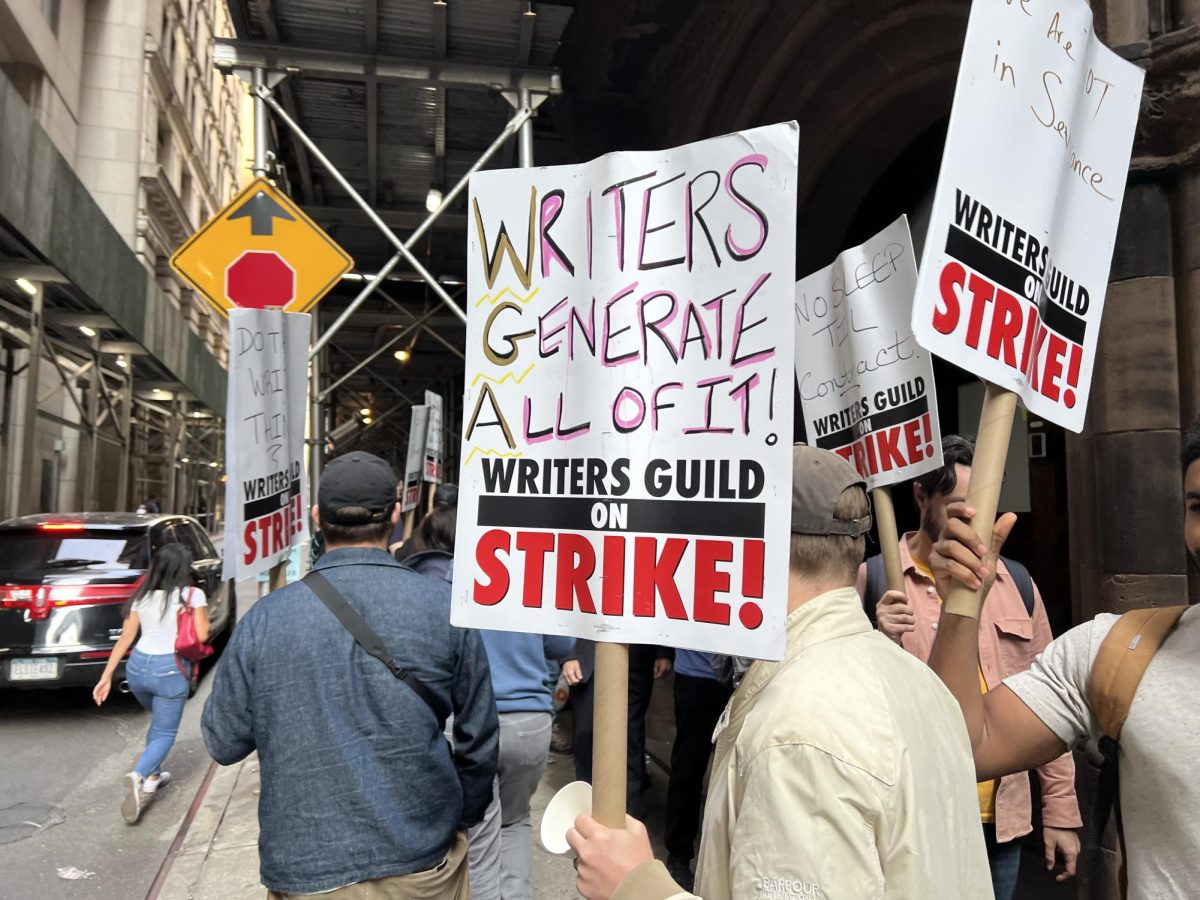For the past 150 days, strikes led by the Writers Guild of America (WGA) were held, spawning from the WGA’s calls for reform within the industry. For context, the WGA is a union of writers whose works span from the creation of various scripted series and movies all the way to news programs and talk shows. According to Forbes, the WGA began its call for reform on March 7, 2023, when it asked for “increased compensation, better residuals, staffing requirements, protections from artificial intelligence job interference and more.”
When these conditions were not met, full-blown strikes ensued. According to Deadline, production was halted on many major projects, such as “Evil,” “Stranger Things,” “Cobra Kai,” “Yellowjackets” and “Abbot Elementary,’” to name a few. Following almost three months of demanding better conditions and striking with no real success, SAG-AFTRA (Screen Actors Guild and the American Federation of Television and Radio Artists) decided to follow suit and join the strikes. With the addition of SAG-AFTRA to the strikes, even more shows and movies were forced to halt production.
After months of protesting, with countless shows and movies having their production halted, an end to the writers’ strike finally came into sight. On Sept. 24, a tentative agreement was reached and a new three-year contract was made to protect the rights of writers in agreement with their demands. In this new deal, protections were ensured surrounding the use of artificial intelligence, more fair compensation and other related terms. On Sept. 26, writers were cleared to stop striking and return to work. A vote is set to take place between Oct. 2 and 9 to ratify this agreement, which would solidify its validity. A list of what the WGA proposed versus what is included in the tentative agreement can be found here.
In light of the strike ending, some shows that had production halted will be starting back up. According to an article from “Today,” many talk shows, such as “The Tonight Show Starring Jimmy Fallon” and “Late Night with Seth Meyers,” should be up and running again soon, with some airing as soon as Oct. 2. Shows that require SAG members could take longer to resume, as the SAG-AFTRA strike is still occurring.
Looking at the impacts of this strike, it’s clear to see that it was historic. Dani Anguiano of The Guardian is quoted in an article saying, “The writers’ strike, which lasted 146 days, was just five days shy of becoming the longest strike in the guild’s history.” The longest strike, which took place in 1988, lasted 153 days.
In addition, Robert Noll, a professor at JCU with nine Emmys to his name, commented on the seriousness of the strike: “This was the second longest writers strike in history. A lot was at stake for writers with the threat of A.I. being able to write full movie and TV scripts and also streaming programs becoming so popular but only producing a few episodes. This means that they don’t produce 22 or 24 episodes like in the past, which means less episodes to write, meaning less money for writers, and less writers needed.”
Even with this historic win for writers, there is still change within the industry that needs to occur. Presently, even though the writers’ strike is over, the strike that was started by SAG-AFTRA continues on. Hopefully, an agreement can be reached in regards to the strike soon



